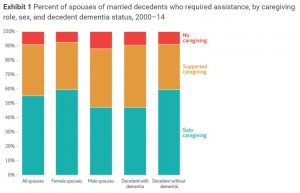Discussions about the cost and complexity of America’s healthcare, don’t normally account for the labor cost provided by friends and family. But those supports are large and a growing part of the U.S. healthcare.
Millions of dollars are raised every year in donations to help with medical bills, and care provided by family and friends is worth billions. Family and friend caregivers bear a sizeable financial and emotional burden that the formal system depends on, but does not pay or accommodate. The precise value of volunteer caregiving is hard to estimate but definitely is not small.
